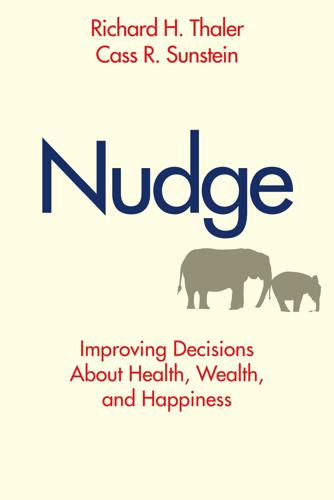
Nudge: Improving Decisions About Health, Wealth, and Happiness
by
Richard H. Thaler
and
Cass R. Sunstein
Published 7 Apr 2008
This makes it clear why leaving ballot design to politicians is an obviously bad idea, whereas letting politicians hire experts to help pick sensible default options for Medicare participants is probably a good idea (especially if politicians have to report donations from insurance companies). Why Stop at Libertarian Paternalism? We hope that conservatives, moderates, liberals, self-identified libertarians, and many others might be able to endorse libertarian paternalism. So far we have emphasized the criticisms of certain conservatives and the most ardent libertarians. A different set of objections can be expected from the opposite direction. Enthusiastic paternalists might well feel emboldened by evidence of Human frailties. So emboldened, they might urge that in many domains, nudging and libertarian paternalism are much too modest and cautious. If we want to protect people, why not go further?
…
And just as a building architect must eventually build some particular building, a choice architect like Carolyn must choose a particular arrangement of the food options at lunch, and by so doing she can influence what people eat. She can nudge.* Libertarian Paternalism If, all things considered, you think that Carolyn should take the opportunity to nudge the kids toward food that is better for them, Option 1, then we welcome you to our new movement: libertarian paternalism. We are keenly aware that this term is not one that readers will find immediately endearing. Both words are somewhat off-putting, weighted down by stereotypes from popular culture and politics that make them unappealing to many.
…
As we will see, these principles (and many more) can be applied in both the private and public sectors, and there is much room for going beyond what is now being done. A New Path We shall have a great deal to say about private nudges. But many of the most important applications of libertarian paternalism are for government, and we will offer a number of recommendations for public policy and law. Our hope is that that those recommendations might appeal to both sides of the political divide. Indeed, we believe that the policies suggested by libertarian paternalism can be embraced by Republicans and Democrats alike. A central reason is that many of those policies cost little or nothing; they impose no burden on taxpayers at all.
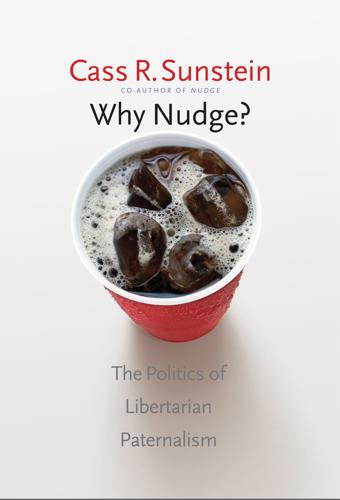
Why Nudge?: The Politics of Libertarian Paternalism
by
Cass R. Sunstein
Published 25 Mar 2014
A jail sentence and a fine count as hard paternalism, whereas a disclosure policy, a warning, and a default rule count as soft or libertarian paternalism. Some forms of paternalism impose material costs, such as fines, on people’s choices in order to improve their welfare. Other forms impose affective or psychic costs, as in the case of graphic health warnings, which might be designed to frighten people. Behavioral economists have generally favored soft rather than hard paternalism.48 Means paternalism can be hard or soft, and the same is true of ends paternalism. My topic here extends far beyond libertarian paternalism and nudges, understood as approaches that affect choices without coercion, but it is important to see that nudges generally fall in the categories of means paternalism and soft paternalism.
…
We can understand soft paternalism, thus defined, as including nudges, and I will use the terms interchangeably here. In a careful and illuminating book, one that is sharply critical of paternalism in any form, Riccardo Rebonato offers a provocative and different definition of libertarian paternalism, or nudges: Libertarian paternalism is the set of interventions aimed at overcoming the unavoidable cognitive biases and decisional inadequacies of an individual by exploiting them in such a way as to influence her decisions (in an easily reversible manner) towards choices that she herself would make if she had at her disposal unlimited time and information, and the analytic abilities of a rational decision-maker (more precisely, of Homo Economicus).9 This definition is useful, but it is imprecise in three respects.
…
STORRS LECTURES ON JURISPRUDENCE Yale Law School, 2012 Cass R. Sunstein Why Nudge? The Politics of Libertarian Paternalism Published with assistance from the foundation established in memory of Amasa Stone Mather of the Class of 1907, Yale College. Copyright © 2014 by Cass R. Sunstein. All rights reserved. This book may not be reproduced, in whole or in part, including illustrations, in any form (beyond that copying permitted by Sections 107 and 108 of the U.S. Copyright Law and except by reviewers for the public press), without written permission from the publishers. Yale University Press books may be purchased in quantity for educational, business, or promotional use.
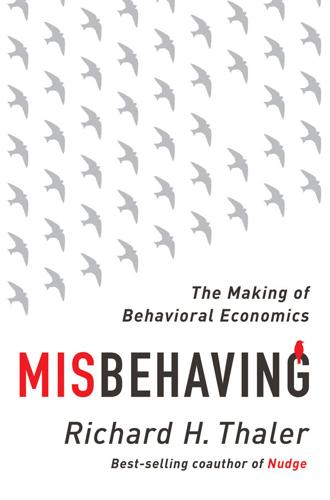
Misbehaving: The Making of Behavioral Economics
by
Richard H. Thaler
Published 10 May 2015
Are there ways to make it easier for people to make what they will deem to be good decisions, both before and after the fact, without explicitly forcing anyone to do anything? In other words, what can we achieve by limiting ourselves to libertarian paternalism? We knew that the phrase “libertarian paternalism” would raise some hackles. It is not just at the University of Chicago that people dislike the term “paternalism”; many object to the government, or anyone else for that matter, telling them what to do, and that is what the term normally means. The phrase “libertarian paternalism” is a mouthful, and it does sound like an oxymoron. But it is not; at least not the way we define the terms. By paternalism, we mean trying to help people achieve their own goals.
…
Peter was an early fan of and contributor to behavioral economics, and he took the opportunity to organize a few sessions at the meeting on behavioral topics and invited a session on paternalism. Cass and I wrote a short paper that introduced the idea of libertarian paternalism. With the five published pages we were allotted, Cass was barely getting warmed up, so he took that piece and developed it into a proper law review article, over forty pages. We called it “Libertarian Paternalism Is Not an Oxymoron.” When I printed a draft of the law review version of the paper it looked quite long to me. One day I asked Cass whether he thought there might be a book in it. It would be an understatement to say that Cass loved the idea.
…
Econs, see also Econs hyperbolic discounting, see present bias (hyperbolic discounting) hypothetical questions, 38–39, 82 Ibrahim (game show contestant), 304–5 ice companies, 210 ideas42, 184, 344, 345 identified lives, 13 Illinois, 328 impartial spectator, 88, 103 incentive compatible situations, 60 incentives, 47–49, 50, 52 monetary, 353 incentives critique of behavioral economics, 47–49, 50, 52 India, 364 individual investment behavior, 184 Individual Retirement Accounts (IRAs), 310–11, 370 induced value methodology, 40–41, 149–53, 151 inertia, in savings plan, 313 inflation, “real” wages reduced by, 131–32 Influence (Cialdini), 335, 336 Innovations for Poverty Action, 342 inside view, 191 outside view vs., 186–87 instant endowment effect, 154 Intelligent Investor, The (Graham), 219, 220 interest rates, 77–78, 79, 350 intertemporal choice, 88–99 Into Thin Air (Krakauer), 356–57 intrauterine device (IUD), 342 “Invest Now, Drink Later, Spend Never” (Shafir and Thaler), 71 invisible hand, 52, 87 invisible handwave critique of behavioral economics, 51–53, 149, 209 iPhone, 280, 326 Iran, 130 Irrational Exuberance (Shiller), 234 irrelevance theorem and behavioral economics, 164–67 IRS, 314–15 iTunes, 135–36 Ivester, Douglas, 134–35 Iwry, Mark, 314–15, 316 Jameel Poverty Action Lab (J-PAL), 344 JC Penney, 62–63 Jensen, Michael, 51–52, 53, 105 and efficient market hypothesis, 205, 207, 208 Jevons, William Stanley, 88, 90 Joey (doll), 129 Johnson, Eric, xv, 82, 180n, 299, 300 on default organ donations, 327–28 Johnson, Ron, 62 Johnson, Steven, 39–40 Jolls, Christine, 184, 257, 258, 260, 269 Jordan, Michael, 19 Journal of Economic Behavior and Organization, 53–54 Journal of Economic Perspectives, 170–75 Journal of Finance, 243 Journal of Financial Economics, 208 judgment, 179n–80n “Judgment Under Uncertainty: Heuristics and Biases” (Kahneman and Tversky), 22–23, 24 just noticeable difference (JND), 32–33 Kahneman, Daniel, 21, 22–23, 24, 29, 36, 103n, 104, 125, 126, 140, 148, 157, 162, 176, 221, 335, 338, 353, 357 and “as if” critique of behavioral economics, 46 in behavioral economics debate, 159, 160 in Behavioral Economics Roundtable, 181, 183, 185 book edited by, 187 on changes in wealth, 30–31 endowment effect studied by, 149–55 equity premium puzzle studied by, 197–98 on extreme forecasts with flimsy data, 218, 219, 223 framing studied by, 18 hypothetical choices defended by, 38, 82 lack of incentives in experiments of, 47–48 and “learning” critique of behavioral economics, 49 on long-shot odds, 80–81 narrow framing work of, 186–87, 191 Sunstein’s collaboration with, 258 Thaler’s first meeting with, 36–37 Thaler’s laziness praised by, xv–xvi on theory-induced blindness, 93 and Tversky’s cancer, xiii–xiv two-system view of mind, 103, 109 and Ultimatum Game, 140, 141, 267 unambiguous questions studied by, 295–96 Wanner given advice by, 177 Kan, Raymond, 243 Karlan, Dean, 19 Kashyap, Anil, 272, 273 Katrina, Hurricane, 133, 327 Keynes, John Maynard, 94–95, 96 beauty contest analogy of, 210–11, 212, 214 and behavioral macroeconomics, 349 on conventional wisdom, 210, 292 decline of interest in ideas of, 209 as forerunner of behavioral finance, 209 as investor, 209, 219 on market anomalies, 209–10, 219 kidneys, auctions for, 130 Kitchen Safe, 107n Kleidon, Allan, 167–68, 232 KLM, 356 “Knee-Deep in the Big Muddy” (Staw), 65 Knetsch, Jack, 126, 127–28, 140, 148–49, 267 Kohl’s, 62 Kokonas, Nick, 138–39 Korobkin, Russell, 269 Krakauer, Jon, 356–57 Krueger, Alan B., 139n, 359, 372 Kuhn, Thomas, 167–68, 169, 171, 172, 349 Kunreuther, Howard, 25 Laboratory Experimentation in Economics: Six Points of View (Roth), 148 Labor Department, U.S., 316 Laibson, David, 110, 183, 315n, 353 Lamont, Owen, 244, 250 law and economics, 257–69 law of large numbers, 194–95 law of one price, 237–39, 244, 247, 248, 250, 348 learning critique of behavioral economics, 49–51, 153 Leclerc, France, 257 Lee, Charles, 239 closed-end fund paper of, 240–43, 244 Leno, Jay, 134 Lester, Richard, 44–45 Letwin, Oliver, 331 Levitt, Steven, 354 Lewin, Kurt, 338, 340 liar loans, 252 Liberal Democrats, U.K., 332 libertarian paternalism, 322, 323–25 “Libertarian Paternalism Is Not an Oxymoron” (Sunstein and Thaler), 323–25 Lichtenstein, Sarah, 36, 48 life, value of, see value of a life life-cycle hypothesis, 95–96, 97, 98, 106, 164 “Life You Save May Be Your Own, The” (Schelling), 12–13, 14 limits of arbitrage, 249, 288, 349 Lintner, John, 166, 226, 229 Liquid Assets (Ashenfelter), 68 List, The, 10, 20–21, 24, 25, 31, 33, 36, 39, 43, 58, 68, 303, 347 List, John, 354 lives, statistical vs. identified, 13 loans, for automobiles, 121–23 Loewenstein, George, 88, 111, 176, 180–81, 362 in Behavioral Economics Roundtable, 181 effort project of, 199–201 paternalism and, 323 London, 248 Long Term Capital Management (LTCM), 249, 251 loss aversion, 33–34, 52, 58–59, 154, 261 dividends and, 166 of managers, 187–89, 190 myopic, 195, 198 Lott, John, 265–66 Lovallo, Dan, 186, 187 Lowenstein, Roger, xv–xvi, 12 LSV Asset Management, 228 Lucas, Robert, 159 Luck, Andrew, 289 MacArthur Foundation, 184 Machiguenga people, 364 Machlup, Fritz, 45 macroeconomics: behavioral, 349–52 rational expectations in, 209 Macy’s, 62, 63 Madrian, Brigitte, 315–17 Magliozzi, Ray, 32 Magliozzi, Tom, 32–33 Major League Baseball, 282 “make it easy” mantra, 337–38, 339–40 Malkiel, Burton, 242 managers: growth, 214–15 gut instinct and, 293 loss aversion of, 187–89, 190 risk aversion of, 190–91 value, 214–15 mandated choice, 328–29 marginal, definition of, 27 marginal analysis, 44 marginal propensity to consume (MPC), 94–95, 98 markets, in equilibrium, 44, 131, 150, 207 Markowitz, Harry, 208 marshmallow experiment, 100–101, 102n, 178, 314 Marwell, Gerald, 145 Mas, Alexandre, 372 Massey, Cade, 194, 278–79, 282, 289 Matthew effect, 296n McCoy, Mike, 281–82 McDonald’s, 312 McIntosh, Donald, 103 mean reversion, 222–23 Mechanical Turk (Amazon), 127 Meckling, William, 41, 105 Mehra, Raj, 191 mental accounting, 54, 55, 98, 115, 116, 118, 257 bargains and rip-offs, 57–63 budgeting, 74–79 and equity premium puzzle, 198 on game show, 296–301, 297 getting behind in, 80–84 house money effect, 81–82, 83–84, 193n of savings, 310 sunk costs, 21, 52, 64–73 “two-pocket,” 81–82 Merton, Robert K., 296n “Methodology of Positive Economics, The” (Friedman), 45–46 Mian, Atif, 78 Miljoenenjacht, see Deal or No Deal Miller, Merton, 159, 167–68, 206, 208 annoyed at closed-end fund paper, 242–43, 244, 259 irrelevance theorem of, 164–65, 166–67 Nobel Prize won by, 164 Thaler’s appointment at University of Chicago, reaction to, 255, 256 Minnesota, 335 Mischel, Walter, 100–101, 102, 103, 178, 314 mispricing, 225 models: beta–delta, 110 of homo economicus, 4–5, 6–7, 8–9, 23–24, 180 imprecision of, 23–24 optimization-based, 5–6, 8, 27, 43, 207 Modigliani, Franco: consumption function of, 94, 95–96, 97, 98, 309 irrelevance theorem of, 164–65 Nobel Prize won by, 163–64 Moore, Michael, 122 More Guns, Less Crime (Lott), 265 Morgenstern, Oskar, 29 mortgage brokers, 77–78 mortgages, 7, 77–79, 252, 345 mugs, 153, 155, 263, 264–66, 264 Mullainathan, Sendhil, 58n, 183–84, 366 Mulligan, Casey, 321–22 Murray, Bill, 49–50 mutual fund portfolios, 84 mutual funds, 242 myopic loss aversion, 195, 198 Nagel, Rosemarie, 212 naïve agents, 110–11 Nalebuff, Barry, 170 narrow framing, 185–91 and effort project, 201 NASDAQ, 250, 252 Nash, John, 212 Nash equilibrium, 212, 213n, 367 National Bureau of Economic Research (NBER), 35, 236, 244, 349 National Football League, 139n draft in, 11, 277–91, 281, 283, 285, 286 rookie salaries in, 283 salary cap in, 282–83 surplus value of players in, 285–86, 285, 286, 288 National Public Radio, 32, 305 naturally occurring experiments, 8 NESTA, 343 Net Asset Value (NAV) fund, 238–39, 241 Netherlands, 248, 296–301 neuro-economics, 177, 182 New Contrarian Investment Strategy, The (Dreman), 221–22 New Orleans Saints, 279 New York, 137 New Yorker, 90–91, 91, 92 New York Stock Exchange, 223, 226, 232, 248 New York Times, 292, 327, 328 New York Times Magazine, xv–xvi, 12 Next Restaurant, 138–39 NFL draft, 11, 277–91, 281, 283, 285, 286, 295 Nick (game show contestant), 304–5 Nielsen SoundScan, 135 Nixon, Richard, 363 Nobel, Alfred, 23n Nobel Prize, 23, 40, 207 no free lunch principle, 206, 207, 222, 225, 226n, 227, 230, 233–36, 234, 236, 251, 255 noise traders, 240–42, 247, 251 nomenclature, importance of, 328–29 Norman, Don, 326 normative theories, 25–27 “Note on the Measurement of Utility, A” (Samuelson), 89–94 no trade theorem, 217 Nudge (Thaler and Sunstein), 325–26, 330, 331–32, 333, 335, 345 nudges, nudging, 325–29, 359 number game, 211–14, 213 Obama, Barack, 22 occupations, dangerous, 14–15 Odean, Terry, 184 O’Donnell, Gus, 332–33 O’Donoghue, Ted, 110, 323 Odysseus, 99–100, 101 Office of Information and Regulatory Affairs (OIRA), 343–44 Office of Management and Budget, 343 offices, 270–76, 278 “one-click” interventions, 341–42 open-end funds, 238 opportunity costs, 17, 18, 57–58, 59, 73 of poor people, 58n optimal paternalism, 323 optimization, 5–6, 8, 27, 43, 161, 207, 365 Oreo experiment, 100–101, 102n, 178, 314 organizations, theory of, 105, 109 organs: donations of, 327–28 markets for, 130 Osborne, George, 331 Oullier, Olivier, 333 outside view, inside view vs., 186–87 overconfidence, 6, 52, 124, 355 and high trading volume in finance markets, 217–18 in NFL draft, 280, 295 overreaction: in financial markets, 219–20, 222–24, 225–29 generalized, 223–24 to sense of humor, 218, 219, 223 value stocks and, 225–29 Oxford Handbook of Behavioral Economics and the Law, 269 Palm and 3Com, 244–49, 246, 250, 348 paradigms, 167–68, 169–70 Pareto, Vilfredo, 93 parking tickets, 260 passions, 7, 88, 103 paternalism, 269, 322 dislike of term, 324 libertarian, 322, 323–25 path dependence, 298–300 “pay as you earn” system, 335 payment depreciation, 67 Pearl Harbor, Japanese bombing of, 232 P/E effect, 219–20, 222–23, 233, 235 pensions, 9, 198, 241, 320, 357–58 permanent income hypothesis, 95 Peter Principle, 293 pharmaceutical companies, 189–90 Pigou, Arthur, 88, 90 plane tickets, 138 planner-doer model, 104–10 Plott, Charlie, 40, 41, 48, 49, 148, 149, 177, 181 poker, 80, 81–82, 99 poor, 58n Posner, Richard, 259–61, 266 Post, Thierry, 296 poverty, decision making and, 371 Power, Samantha, 330 “Power of Suggestion, The” (Madrian and Shea), 315 practice, 50 predictable errors, 23–24 preferences: change in, 102–3 revealed, 86 well-defined, 48–49 pregnancy, teenage, 342 Prelec, Drazen, 179 Prescott, Edward, 191, 192 present bias (hyperbolic discounting), 91–92, 110, 227n and NFL draft, 280, 287 savings and, 314 presumed consent, in organ donations, 328–29 price controls, 363 price/earnings ratio (P/E), 219–20, 222–23, 233, 235 prices: buying vs. selling, 17, 18–19, 20, 21 rationality of, 206, 222, 230–33, 231, 237, 251–52 variability of stock, 230–33, 231, 367 price-to-rental ratios, 252 principal-agent model, 105–9, 291 Prisoner’s Dilemma, 143–44, 145, 301–5, 302 “Problem of Social Cost, The” (Coase), 263–64 profit maximization, 27, 30 promotional pricing strategy, 62n prompted choice (in organ donation), 327–29 prospect theory, 25–28, 295, 353 acceptance of, 38–39 and “as if” critique of behavioral economics, 46 and consumer choice, 55 and equity premium puzzle, 198 expected utility theory vs., 29 surveys used in experiments of, 38 psychological accounting, see mental accounting “Psychology and Economics Conference Handbook,” 163 “Psychology and Savings Policies” (Thaler), 310–13 Ptolemaic astronomy, 169–70 public goods, 144–45 Public Goods Game, 144–46 Punishment Game, 141–43, 146 Pythagorean theorem, 25–27 qualified default investment alternatives, 316 quantitative analysis, 293 Quarterly Journal of Economics, 197, 201 quasi-hyperbolic discounting, 91–92 quilt, 57, 59, 61, 65 Rabin, Matthew, 110, 181–83, 353 paternalism and, 323 racetracks, 80–81, 174–75 Radiolab, 305 randomized control trials (RCTs), 8, 338–43, 344, 371 in education, 353–54 Random Walk Down Walk Street, A (Malkiel), 242 rational expectations, 98, 191 in macroeconomics, 209 rational forecasts, 230–31 rationality: bounded, 23–24, 29, 162 Chicago debate on, 159–63, 167–68, 169, 170, 205 READY4K!
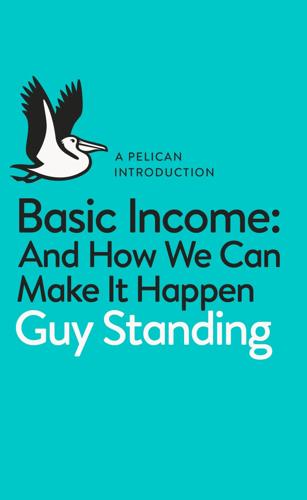
A Pelican Introduction: Basic Income
by
Guy Standing
Published 3 May 2017
They have been highly influential, to the extent that one of the authors of Nudge, the seminal book on the subject, became principal regulator in Barack Obama’s White House, while the other became an adviser to the British Prime Minister.11 Libertarian paternalism has become a dominant mode of policy making in the globalization era, advocated and implemented by those calling themselves liberals (as in the case of Britain’s Liberal Democrats when they were in the coalition government) and by social democrats, as well as by conservatives. Its vision of ‘right’ and ‘wrong’ is rooted in the political philosophy of utilitarianism, drawing heavily on the writings of Jeremy Bentham (1748–1832). In particular, libertarian paternalism derives from Bentham’s ‘panopticon’, a prison design enabling prisoners to be watched by a guard at all times and their behaviour monitored.
…
Green opposite, as well as libertarians, have long been united in their opposition to paternalism of all sorts, and above all to what is best described as state paternalism, except regarding children and the mentally frail. But intellectual consistency has not been a virtue of modern politicians, on the left as well as the right. Many have implicitly or explicitly embraced a dangerous hybrid known as ‘libertarian paternalism’, which ‘steers’ or ‘nudges’ people to ‘make the right choice’. Today it may be a bigger threat to freedom than outright authoritarianism, because it is so invidious and manipulative. The implications are considered later in this chapter. A basic income can be described as a basic economic right that is a necessary condition for liberal notions of freedom.
…
So we are trading off freedom for freedom.’10 Although this line of reasoning can be rebutted in various ways, the simplest retort is that unless the state protects the basic freedoms of its most vulnerable members, they will be inclined to hit back by violating the freedoms of those intensifying their vulnerability. If libertarians succeeded in creating such a minimalist social state that the vulnerable were left bereft of hope, they should not be surprised if the resentment led to some retributive justice. The Danger of Libertarian Paternalism Many libertarians reveal themselves as little more than moralistic conservatives. Thus Charles Murray sees a basic income as encouraging ‘better’ behaviour and a revival of ‘civic culture’. This is a paternalistic argument, not one about freedom. But he is not as explicit as the new breed of libertarian paternalists, who lean on ‘behavioural economics’ and ‘nudge theory’ to justify giving a very prominent role to government to steer or nudge people to make ‘the right choices’.
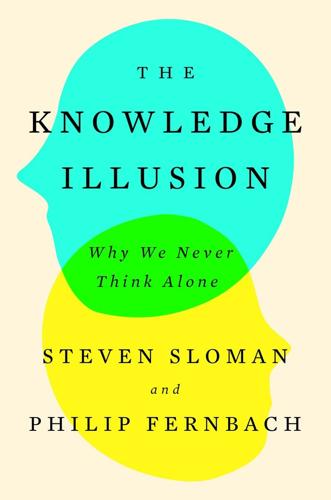
The Knowledge Illusion
by
Steven Sloman
Published 10 Feb 2017
We think it is inevitable that people will continue to make decisions—even very consequential decisions—without deep understanding. So how can we help people to make wiser choices? Nudging Better Decisions The University of Chicago economist Richard Thaler and the Harvard legal scholar Cass Sunstein have developed a philosophy that they call libertarian paternalism. Although the name is a mouthful, the idea is simple and compelling. The main observation is that people don’t always make the best possible decisions; they don’t always choose the option that makes it most likely that they will achieve their own goals. Examples abound: We choose the large pizza instead of the salad and regret it as we’re leaving the restaurant.
…
People post questions, often about difficult topics like particle physics or finance, and forum members try to provide a satisfying explanation that is easily understood. The popularity of this forum speaks to how enjoyable it is to read explanations that we can actually make sense of. It also highlights how rare these are in our day-to-day lives. Lesson 2: Simple Decision Rules Richard Thaler, one of the fathers of the libertarian paternalism approach, has thought a lot about financial decision-making. He agrees that attempting to give people a deep understanding of financial topics is unlikely to work. The financial world is just too complex and people’s abilities are too limited. He argues that rather than trying to educate people, we should give them simple rules that work pretty well and can be applied with little knowledge or effort, rules like “Invest as much as possible in your 401(k) plan,” “Save 15 percent of your income,” or “Get a fifteen-year mortgage if you are over fifty.”
…
See vision facial recognition, 45–46 false information, spreading, 231–32 Faro, David, 164 fear, 104 Fernbach, Philip, 121–22 financial issues annuity paradox, 242–43 consumers’ lack of knowledge regarding, 233–37, 253 credit card debt, 235–36 economies as example of hive mind collaboration, 244–46 education programs to address, 240–41 household cognitive financial labor, 246–47 just-in-time education, 251–52 linear vs. nonlinear change, 234–37 mortgage rates and payments, 233, 236–37, 246 savings, growth of, 234–35 simple decision rules for, 250–51 value of currency, 245–46 Woodward, Susan, 233–34 Yap economy, 245 Fisher, Matt, 137 fluid intelligence, 202 fly ball example of gaze-direction strategy, 96–98 flying as an example of shared knowledge, 18 food choices example of libertarian paternalism, 248–49 hunting for, 108–10, 113 irradiation, 167–68 forward reasoning. See predictive reasoning Fox, Craig, 121 fractals, 33–34 Frederick, Shane, 80–82 “Funes the Memorious” (Borges), 37–39, 47–48 Galileo’s experiments with dropping different weights, 65–66 Galton, Francis, 148 Gandhi, Mahatma, 196–97 Garcia, John, 51 gay marriage, 186 gaze-direction strategy fly ball example, 96–98 genetic engineering citrus greening disease example, 166–67 crops, new varieties of, 155 genetically modified organisms (GMOs), 155, 165–67 “golden rice” to prevent Vitamin A deficiency, 155 geology article example of accessible knowledge, 123–24 gestures, 117 Ginges, Jeremy, 187 Giuliano, Toni, 120 global warming, 169–70 Good Old-Fashioned Artificial Intelligence (GOFAI) project, 86–90 Gould, Stephen Jay, 34–35 GPS (Global Positioning System) software, 139–40, 143 graffiti example of storytelling, 63 Graves, Alvin, 19–20 groupthink, 173–75 group thinking, 121–22.
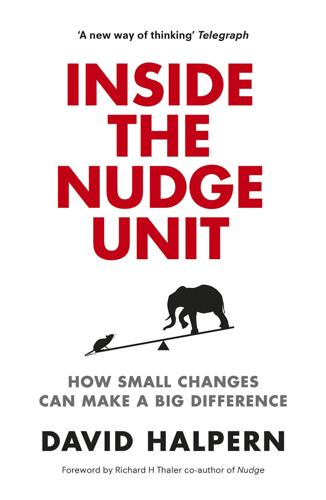
Inside the Nudge Unit: How Small Changes Can Make a Big Difference
by
David Halpern
Published 26 Aug 2015
Within particular domains, such as encouraging giving up smoking, the role of behaviour was palpably obvious and clearly made the case for some behavioural and psychological thinking. The thinking in the PMSU paper also had another specific impact, which was on pensions policy. One of the papers quoted – and highlighted by Kahneman when he came in – was an early piece on ‘libertarian paternalism’ documenting the powerful impacts of defaults. At that time we had a big review running on pensions, led by an outsider named Adair Turner. I thought the paper on the impacts of defaults so important to the review that I printed off a copy and sent it to Adair and the review team, with a scribbled note along the lines of ‘I think this is probably the most important and interesting paper that you are going to read on pensions’.
…
PRIME MINISTER CAMERON AND DEPUTY PRIME MINISTER CLEGG, THE COALITION AGREEMENT, 2010 Five years after the ill-fated PMSU review, and on the other side of the Atlantic, there was a major breakthrough in the application of behavioural science to policy. When Richard Thaler, a Chicago economist, and Cass Sunstein, a Harvard academic lawyer, first wrote their book, it was intended to be called Libertarian Paternalism, just like the paper on which it drew heavily. Fortunately for them, and for the rest of us, a prospective publisher suggested an alternative title, Nudge, under which it was published in 2008fn1. It makes you wonder how many other great ideas are buried under the weight of an academic title.
…
The politicos didn’t mind that I had worked closely with Blair, since the Cameron team quite admired him – and the three elections he won. It also helped that the Liberal Democrats, the junior partner in the Coalition, were also rather taken with the nudge approach. The two key advisers to the Lib Dem Deputy Prime Minister Nick Clegg – Richard Reeves and Polly Mackenzie – both liked the liberal aspects of ‘libertarian paternalism’, and also the empiricism associated with the approach. The wheels of the civil service had already started to turn, seeking to interpret what it was that the new government wanted – or at least a compromise between what the new government wanted and what the civil service thought would be a good idea.
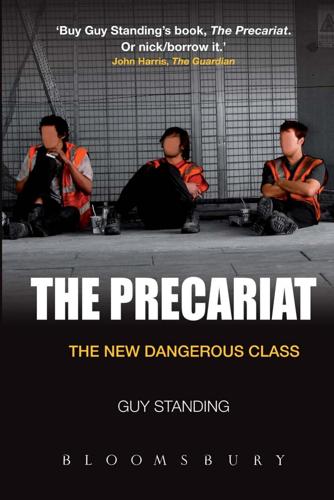
The Precariat: The New Dangerous Class
by
Guy Standing
Published 27 Feb 2011
Give them what they want! This is an illusion of empowerment that degrades responsibility and professionalism. Soon, everybody will be rating everybody else. The state as libertarian paternalist A new perspective on social and economic policy is behavioural economics, which has produced libertarian paternalism. Nudge, an influential book by Cass Sunstein and Richard Thaler (2008), two Chicago-based advisers and friends of Barack Obama, was premised on the idea that people have too much information and so make irrational decisions. People must be steered, or nudged, to make A POLITICS OF INFERNO 139 the decisions that are in their best interest.
…
At least that recognised that jobs were not attractive in themselves. But here was the state indulging in paternalistic steering while contributing to the demonisation of part of the precariat. They cannot work out how to behave themselves! One could give many examples of the use of behavioural economics and libertarian paternalism to bear on the lives of the precariat, notably through clever use of ‘opt-out’ rules, making it hard to opt out and almost obligatory to ‘opt in’. The new buzz word is ‘conditionality’. There has been a remarkable growth of conditional cash transfer schemes or CCTs. The leading examples have been in Latin America, led by the Progresa scheme (now Oportunidades) in Mexico and Brazil’s Bolsa Familia, which by 2010 was reaching over 50 million people.
…
However, making a fetish of happiness is not a prescription for civilised society. The precariat must beware of the modern equivalent of a bread-and-circuses existence being offered by the state through pseudo-science and nudging. The therapy state While they set out to make people happy, libertarian paternalism and the utilitarianism underlying it have unleashed a cult of therapy, mirroring what happened in the period of mass insecurity at the end of the nineteenth century 142 THE PRECARIAT (Standing, 2009: 235–8). The hegemonic instrument in today’s equivalent is cognitive behavioural therapy (CBT), which originated in the United States but which is globalising with indecent commercial speed.
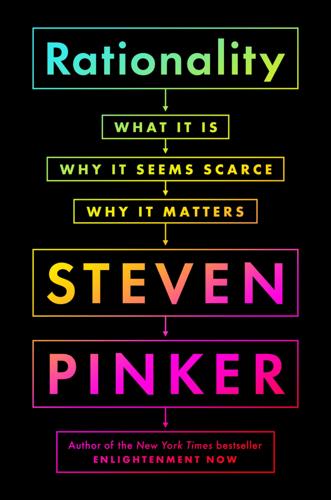
Rationality: What It Is, Why It Seems Scarce, Why It Matters
by
Steven Pinker
Published 14 Oct 2021
Before being faced with that temptation, we might allow our employers to make the choice for us (and other choices that benefit us in the long run) by enrolling us in mandatory savings by default: we would have to take steps to opt out of the plan rather than to opt in. This is the basis for the philosophy of governance whimsically called libertarian paternalism by the legal scholar Cass Sunstein and the behavioral economist Richard Thaler in their book Nudge. They argue that it is rational for us to empower governments and businesses to fasten us to the mast, albeit with loose ropes rather than tight ones. Informed by research on human judgment, experts would engineer the “choice architecture” of our environments to make it difficult for us to do tempting harmful things, like consumption, waste, and theft.
…
Informed by research on human judgment, experts would engineer the “choice architecture” of our environments to make it difficult for us to do tempting harmful things, like consumption, waste, and theft. Our institutions would paternalistically act as if they know what’s best for us, while leaving us the liberty to untie the ropes when we are willing to make the effort (which in fact few people exercise). Libertarian paternalism, together with other “behavioral insights” drawn from cognitive science, has become increasingly popular among policy analysts, because it promises more effective outcomes at little cost and without impinging on democratic principles. It may be the most important practical application of research on cognitive biases and fallacies so far (though the approach has been criticized by other cognitive scientists who argue that humans are more rational than that research suggests).26 Rational Ignorance While Odysseus had himself tied to the mast and rationally relinquished his option to act, his sailors plugged their ears with wax and rationally relinquished their option to know.
…
New York: Oxford University Press. Gigerenzer, G. 2011. What are natural frequencies? BMJ, 343, d6386. https://doi.org/10.1136/bmj.d6386. Gigerenzer, G. 2014. Breast cancer screening pamphlets mislead women. BMJ, 348, g2636. https://doi.org/10.1136/bmj.g2636. Gigerenzer, G. 2015. On the supposed evidence for libertarian paternalism. Review of Philosophy and Psychology, 6, 361–83. https://doi.org/10.1007/s13164-015-0248-1. Gigerenzer, G. 2018a. The Bias Bias in behavioral economics. Review of Behavioral Economics, 5, 303–36. https://doi.org/10.1561/105.00000092. Gigerenzer, G. 2018b. Statistical rituals: The replication delusion and how we got there.
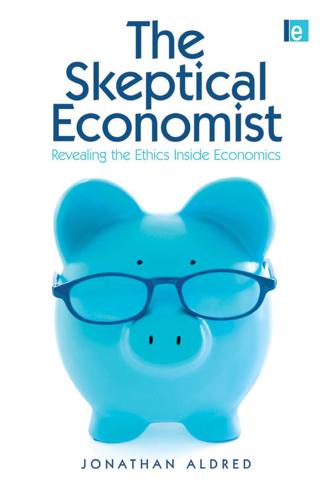
The Skeptical Economist: Revealing the Ethics Inside Economics
by
Jonathan Aldred
Published 1 Jan 2009
For example, in deciding whether to enter a pension scheme, libertarian paternalists argue that we should have to ‘opt out’ rather than ‘opt in’, so that mere inertia does not prevent us from making choices which bring important long-term benefits. Libertarian paternalists often use this example as an ideal illustration of their philosophy in practice, and see it as influencing government policy. But if this is a leading achievement of libertarian paternalism, it is tempting to conclude that it tells us little we did not already know. Libertarian paternalism is good as far as it goes, but that is not very far. By trying to reconcile the irreconcilable — that is, combine libertarianism with paternalism — economists and policy makers end up with a minimalist ethics, which answers few practical questions.
…
Caplan argues that initially undergraduates should be kept in the dark too, advising fellow academics not to mention the assumptions or limitations behind textbook economics, and to tell their students ‘I’m right, the people outside this classroom are wrong, and you don’t want to be like them, do you?’15 He concludes that ‘democracies fall short because voters get the foolish policies they ask for’.16 But rather than dismissal, seeking a compromise between democracy and science would seem to be a better way forward. Libertarian paternalism is one currently fashionable attempt at this compromise.17 In practice, it means trying to steer a person’s decision making in the right direction, rather than restricting free choices directly or banning some choices altogether. For example, in deciding whether to enter a pension scheme, libertarian paternalists argue that we should have to ‘opt out’ rather than ‘opt in’, so that mere inertia does not prevent us from making choices which bring important long-term benefits.
…
Land Economics 73: 492-507 Index ability to pay 87 absolute consumption 58-59 accountability 199, 205-206, 230 see also audit culture adaptation 23-24, 25, 237 and increasing happiness 66-67, 98, 140-141 to economic growth 55-57, 61-62 addictive consumption 22-24, 98 advertising brand recognition 16 consumer sovereignty 19-21 increased choice 41 restricting 236-237 affluenza 3, 235-238 altruism see unselfish behaviour animal lives 160 Aristotle 134, 135 audit culture 192-198, 202, 204-205 availability 15-16, 122 babies, markets in 181, 209 Baumol’s cost disease 68-74, 78, 237-238 affordability of personal services 74-77, 191 Baumol, William 68, 75, 76, 77 Bayesianism 164-166, 178, 224-225 Bayes, Thomas 164 Becker, Gary 27, 34 behavioural economics 26, 232-233, 234 belief 13 benefit transfer 157 Bentham, Jeremy 120-121, 130-131, 135 best practice 201, 202 Bewley, Truman 229 biodiversity 160 black box economics 1-2, 4 Blanchard, Oliver 48 Blinder, Alan 232 blood donation 33, 197, 217 body shape and weight 42 brand recognition 16, 21 Breyer, Stephen 156 Broome, John 154 Bush, George W. administration 146, 153, 156 capital investment 168 capital punishment 215-216 Caplan, Bryan 226-227 carbon trading markets 222, 223 cars advertising 20 ownership 42-43, 63 catastrophe, precautionary principle 173 charitable giving 27, 28, 33-34 choice 25-26 costs to consumers 39, 191 economic analysis 12-14, 25-26, 43-44 increasing options 39-43, 182-184, 192 inequalities of 43, 189-190, 209-210 ofjobs 101-102 psychologist analysis 14-19 in public services 184-186, 188-192, 205 rational 11-12, 21, 28, 164-165 see also decision making choice advisers 191 citizen’s income 97 citizens’ juries 214, 215 climate change 2, 21, 146, 147-151, 159, 218 precautionary principle 173 valuing the future 161, 162 commodification 179-181, 206-216 alternatives to CBA 213-216 limits to monetary valuation 216-219 meaning of monetary valuation 207-210 rational decision making 211-213 commuters 56, 57 compensation argument for rates of pay 99-103, 105 competitive consumption 24-25, 57-62, 62-63 congestion 60-61 consumers 11-45 addictive consumption 22-24, 98 choice in public services 182-192 competitive consumption 24-25, 57-62, 62-63 preference satisfaction 37-43 rational choice 11-12 self-interest 26-36 shopping 12-19 sovereignty myth 19-22, 25, 156, 158, 225 consumption future 168 see also consumers context-specific valuation of risk 157-158 contingent valuation surveys 152, 157 contracts 203-204 contribution argument for rates of pay 103-108 coordination problem 63 cost-benefit analysis (CBA) 145-178 alternatives to 173-174, 213-216 best practice 201, 202 climate change 2, 146, 147-151, 159 determining preferences 39 of emotions 30-31 limits to monetary quantification 175-178 valuing the future 161-173 valuing human life 147-148, 151-160, 209 valuing nature 160-161 Coyle, Diane 2 cream-skimming 189-190, 210 cultural differences in perception of happiness 118-120 cultural value 207 Damasio, Antonio 44 decision making 174, 175, 176-177, 211-214 see also cost-benefit analysis (CBA) declining discount rates 169-170 democracy and accountability 199, 206, 230 and CBA 172-173, 176-177, 214 economics as 225, 227-228 valuing life 158-159 see also politics deserving what we earn 99-109 desire 13 Dickens, Charles 138 digital TV 41, 42 diminishing marginal utility 95, 158-159 disappointment 41 discounting 149, 166-173, 176, 178, 226, 234 doctors 2, 70, 91, 106-107 decisions on behalf of patients 186-187 drugs 128 earnings 79-80 differences in 99-109 personal services sector 70-71 see also performance-related pay (PRP); taxation economic growth 47-78, 168, 170 adaptation to 55-57, 61-62 affordability of personal services 74-77 alternative form of 236-238 and consumer sovereignty 21-22 and happiness 48-55, 61-62, 66-68, 141-142 meaning and measurement of 64-66 rivalry 57-62, 62-63 self-help 62-64 and taxation 88, 89 and work 235-236 see also Baumol’s cost disease economic imperialism 180, 222-223, 233 ecosystem services 160-161 education as a positional good 60-61, 190 reflected in pay 100, 105, 106 to enable pursuit of a good life 136, 236 education services 69, 237-238 choices 185-186 goals 202 inequality 189 supply and demand 190 efficiency 4-6, 8, 177 personal services 75, 191 taxation 93, 94, 95-98, 111-112, 237 effort 108 Ellsberg Paradox 164-165 emotions and choosing public services 185 and complex choices 40-41, 42 and monetary incentives 197 and prediction of satisfaction 16 and self-interest 30-31 employment 48, 53, 142, 235-236 Environmental Protection Agency (US) (EPA) 151 ethics 7-9, 224-228, 239 consumers 34-36, 37-38, 44 desert 108 and efficiency 5-6, 112 impartiality across generations 166-167, 171-172 limits to monetary valuation 216-219 monetary value for human life 150, 159-160 personal 138 principled disagreement 201-202 for public policy 133-139, 140-141, 142, 177, 234 view of discount rates 170-171 Experience Machine 127 Experience Sampling Method 123,124 fairness and efficiency 94-98 framing effects 14-15, 16, 18, 197 Frank, Robert 56 Freakonomics 1, 31-32, 34, 233 free trade 5-6 Friedman, Milton 7 future generations, discounting 166-167, 168-169, 171-172 future outcomes discounting 149, 166-173 precautionary principle 173-174 see also probabilities gambling games 164 game theory 222, 233 goals happiness 125, 126, 129-133 monetary incentives 200-201 for public services 199, 201-202 self interest 17, 37 Goodhart’s Law 141, 192, 194, 202, 223-224 governments auditing public services 203-204 consumer sovereignty 30, 38, 186 economic growth 47-48, 49, 68 Greatest Happiness principle 137-138 policy and CBA 150, 154, 157, 160, 172-173, 175, 215-216 policy for maximizing happiness 141-143 rights of ownership 81-82, 84-85 setting priorities 210 trust in 230-231 Greatest Happiness principle 127-133, 136-138 growth paths 65, 66 guilt 27, 28, 30-31 habitat destruction 160 Hahn, Robert 163 happiness 113-143 adaptation to material improvement 55-57 defining 114-116, 120-121, 134 and economic growth 48-55, 61-62, 66-68 maximized through extending choice 183 maximized through pay incentives 109 maximized through taxation 94-98 measurement of 53-54, 116-126, 139-140, 141, 224 philosophy of 126-133 and public ethics 133-139 as public policy 140-143 of service providers 191 happiness economics 50-55, 64, 78, 115, 122 alternative form of economic growth 236-237 and politics 137-138, 141-143 happiness treadmill 23, 24, 55 see also satisfaction treadmill Harrod, Sir Roy 59 Hayeck, Friedrich von 27-28 health insurance (US) 189-190 health services 69, 71-72, 237-238 difficulty in choosing 184-185 inequality in 189-190 productivity improvements 70, 74 see also doctors Heckman, James 188 higher pleasures 130-131, 135-136 Hirsch, Fred 59, 63 holiday entitlements 58, 59 holidays 17 Homo economicus 27, 29-36, 44, 111,178 and behavioural economics 232 determining preferences 39 location in brain 225-226 self-fulfilling assumption 224 service providers 187 and trust 230-231 useful context for 222-223 hours of work 91-92, 105, 108 House of Lords (UK) report on climate change 148, 150 human life discounting 168 monetary value of 21, 147-148, 151-160, 207-208 Quality-Adjusted Life Years 176 Hume, David 129 identity 24-25, 42, 154 ignorance 162 incentive to work 89-92, 104, 109 and tax 109-112 see also audit culture; monetary incentives income adaptation to 23-24 and happiness 52-54 relative 57-58, 59-60, 62 see also earnings; taxation income effect 91, 92 income tax see taxation inconspicuous consumption 59 inefficiency see efficiency inequality acceptability of 79-80 and choice in public services 188-190, 209-210 effect on happiness 54 rates of pay 99-109 information for consumers advertising 19-20 complexity in public services 184-185 inheritance 81, 86, 99 genetic 101, 108 in-kind valuations 213—214 intellectual diversity 229 interest rates 167—168, 169 Intergovernmental Panel on Climate Change (IPCC) 147-148, 158 internet 43 interpersonal utility comparisons 49-50 Israeli day-care centres study 32 Japan, economic growth and happiness 52 Jefferson, Thomas 130 Jevons, William Stanley 49 job centre case workers 188, 202 Kahneman, Daniel 25-26, 124 objective happiness 114, 121, 125, 126 Peak-End evaluations 17, 122, 125 Keynes, John Maynard 6, 177, 235 Kyoto Protocol 146, 148 labour costs see Baumol’s cost disease labour market 5, 72, 142 language 87, 239 and reporting happiness 116-117, 118-119 law-breakers 34-35 Layard, Richard 121, 126, 137 alternative form of economic growth 236-237 Greatest Happiness principle 129-130, 132-133 happiness drugs 128 Le Grand, Julian 184, 186, 187, 188-189, 195-198 libertarianism view of taxation 82, 84, 86 widening choice 183, 205 libertarian paternalism 227-228 life expectancy 54 limited edition products 60 Locke, John 84 lost wallets 27, 28, 30 love 27, 208 luck and responsibility 105-106 marginal tax rates 96-97 market imperfections 218 market prices 33, 107 market rates of pay 99 compensation argument 100-101, 102, 103 contribution argument 103, 104, 106-107 putting a value on human life 147-148, 152-155 mental illness 3, 42, 54 Mill, John Stuart 130-131, 135-136, 183 mobile phone spectrum auctions 222 monetary incentives 30, 31-33, 195-198, 217 public services 200-201 see also performance-related pay (PRP) monetary quantification see commodification; cost benefit analysis (CBA) money corrosive effects of 209 see also monetary incentives mood 121-122, 125 moral convictions 217 motivation intrinsic 33, 195, 197, 200-201 public service staff 186-188, 191-198, 199, 200-201, 206 see also self-interest; status seeking national product 64-65, 70 natural talents 99, 101, 102, 105 nature ownership rights 210 putting a value on 160-161, 208, 213-214 neuroscience 50, 115-116, 117-118, 225-226 news media current perceptions of economics 6-7 doctrine of self-interest 34 silence on Baumol’s cost disease 68-69, 77 Nietzche, Friedrich Wilhelm 119 non-economic impacts 7 non-renewable resources 168 Nozick, Robert 127 Nussbaum, Martha 131 objective happiness 114, 121, 125, 126, 127 objective list theories 134-136 optimal tax theory 95-98 optimization 233 options 13-16 increasing 39-43, 182-184, 192 ownership principle 80-87, 218 pay see earnings; performance-related pay (PRP) Peak-End evaluation 17-18, 122, 125-126 perceived happiness 140 perfect preferences 37-39, 43, 135-136 performance-related pay (PRP) 33, 193-194, 195-198, 200, 237 performative contradiction 231 performative economics 223-224 personal services 69-77, 237-238 Peter the plumber 92-93 pleasure 22-23, 130-131, 134, 135 policy entrepreneurs 1-2 political economics 230-231, 233 political forums 214, 215 politics democracy and CBA 172-173, 177, 215 and happiness economics 137-138, 141-143 poll taxes 93-94 positional goods 59-61, 63, 190, 236, 237 post-tax distribution 85—86, 87, 98 precautionary principle 173—174 preferences 13, 14, 135—136, 225 and advertising 19—20 of future generations 168-169 pure time 166-167, 172 revealed by choices 21, 64 risk 156, 159, 176 satisfaction 37-43 pre-tax economic activity 92-93, 94 pre-tax income 80-84 pricelessness 209, 210 principled disagreement 201-202 priorities audit culture 193, 202 government policy 38, 50, 141,142 private property 80-81 probabilities 150, 154, 155, 161-162, 164-166 productivity 65-66 high earners 96-97 personal services 70-72, 73-74, 75-76 and taxation 88, 89, 90 progressive tax systems 96, 97 psychological well-being (PWB) 134-135 psychology 14-19 see also behavioural economics public opinion 214 public perception of risk 153, 155-156 public service ethos 194, 199-201, 205, 210,219 public services 68, 74-75, 180 affordability 74-77, 237-238 and attitudes to taxation 110-111 audit culture 192-198 complexity and importance 184-185 distinctiveness of 198-206, 216-217 ensuring real choice 188-192 implications of choices for others 185-186 motivation of service providers 186-188, 191-198, 199, 200-201, 206 trust 203-206 widening choice 182-184 see also Baumol’s cost disease pure time preference 166-167, 172 qualitative factors 163 Quality-Adjusted Life Years 174 quality of life 3, 236 measurement of 49-50, 50-55 and public ethics 135-139 quantifying the unquantifiable 162-166 targets 193 Ramsey, Frank 167 rational choice 11-12, 21, 28, 164-165 see also decision making Rawls, John 99, 101, 102 redistribution 86, 88, 92-94 maximization of happiness 95-98 Rees, Bill 232 regret 41, 42 relationships, putting a value on 208 relative consumption 58-59, 61 relative income 57-58, 59-60, 62 research objectives and methods 228-230 responsibility 41, 100, 105 rights 82, 83, 181, 210, 218 rigour in research methods 229 risk monetary value of 21, 151-158, 178, 211 versus uncertainty 161-166 rivalry 24-25, 57-62, 62-63, 237 and increasing happiness 66-67, 98 sacrifice 196 satisfaction treadmill 125, 126, 140 see also happiness treadmill scarcity 59-61, 106-107 science and economics 1, 8, 50, 224, 225,227, 228-230 Greatest Happiness principle 131-133 see also neuroscience self-control 18-19 self-help 62-64 self-interest 12, 13, 17-19, 26-36 and consumer sovereignty 21-22 politicians and economists 230-231 public service providers 187, 188 self-fulfilling assumptions of 31-34, 223 self-reported happiness see surveys, happiness Sen, Amartya 132, 136, 234 Shaw, George Bernard 208, 210 shopping 11, 12 addiction and compulsion 22-26 economist perspective 12-14 psychologist perspective 14-19 smiley-face sampling 124, 130 smiling 119-120 Smith, Adam 6 smoking 18-19, 132, 135 spare capacity in public services 190 standard of living 48 state benefits 85-86 statistical lives 151-152, 154, 207-208 status anxiety 24-25 status seeking 58-61, 62-63, 236 Stern Review 148-149, 150, 166 substitution effect 91, 92, 96 subtractive method 117 supply and demand in public services 189, 190 rates of pay 100, 101, 105, 106 surveys 214 contingent valuation 152, 157 happiness 53-54, 114-115, 116-117, 118-124, 130, 137 public services users 182 sustainability 171 sustainable development 173 Sutton, Willie 34 targets see audit culture taxation 76, 79-98 cigarettes 132 effect on work 88-92 evasion 35 incentive to work 109-112 ownership principle 80-87 redistribution 86, 88, 92-94 to maximize happiness 94-98, 237-238 teachers 70 team working 193, 194 technical innovation 65, 70, 73-74 theory and self-fulfillment 223-224 Titmuss, Richard 33 trade-offs 13 complex choices 40-41 economic growth 63-64 life 160, 211 taxation 94, 95, 97 The Truman Show 127 trust 203-206, 230-231 TWA Flight 800 163 ultimatum game 29, 33-34 uncertainty and the precautionary principle 173 and risk 161-166 unselfish behaviour 27-28, 29 reaction to manipulation 31-32 service providers 187-188 utilitarianism 120-121, 126-133, 135,136,138-139, 183 Uttal, William 117 value judgements see ethics value for money 212 veto economics 2-3, 6, 227 Viscusi, Kip 153 volunteers 195 wage differentials 152-153, 157 Weitzman, Martin 169 work and employment 235-236 hours of 91-92, 105, 108 see also incentive to work worker inputs and outputs 104-105 Table of Contents Contents Acknowledgements Chapter One - Introduction: Ethical Economics?
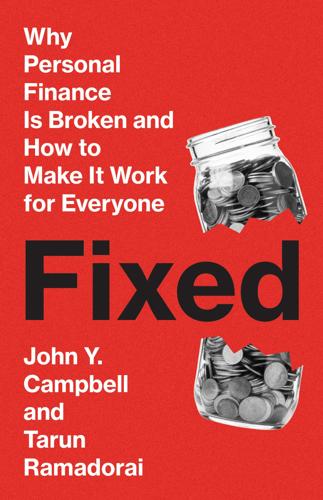
Fixed: Why Personal Finance is Broken and How to Make it Work for Everyone
by
John Y. Campbell
and
Tarun Ramadorai
Published 25 Jul 2025
The most famous example of this approach is the “nudge,” a light-touch intervention that either suggests a good choice or sets it as a default option that will apply in the absence of an active decision. People who wish to make different choices are free to do so, but those who follow the suggestion or accept the default achieve a reasonable outcome. Richard Thaler and Cass Sunstein, who named the approach in their 2008 book Nudge, describe the underlying philosophy as “libertarian paternalism”: paternalism because the government picks a choice it believes to be good for people, but libertarian because people are free to reject the government’s choice and the government does not use its power of taxation to alter market prices or its regulatory authority to limit access to any products.28 Suggested decisions can be effective when people have no strong view about what to do and are open to advice.
…
Legal scholar Lauren Willis documents bank marketing efforts to promote overdraft protection, including messages that ask depositors to choose “Yes: Keep my account working the same with Shareplus ATM and debit card overdraft coverage” or “No: Change my account to remove Shareplus ATM and debit card overdraft coverage.”35 More generally, it can be hard for consumers to distinguish useful guidance from manipulative and misleading advertising—that is, to tell nudge from sludge.36 The moral of the story is that the promise of libertarian paternalism, that households can be helped without restricting their choices or changing the prices they face, is too good to be true. In a toxic information environment, nudging households with suggestions or defaults is typically insufficient to generate broad, economically meaningful financial improvements.
…
See also higher education; housing; mortgages; risky investments Investment Savings Accounts (ISAs), 157–159, 297n6 investors, accredited, 25–26, 218, 261–262 iron law of active investing, 136–137 Islamic principle on financial contracts, 234 Israel, mortgage reform in, 207–208, 224, 289n36 Jackson, Howell, 270n1 James, LeBron, 193 Jansson, Thomas, 234 jewelry, as emergency fund, 69–70 Johnson, Jasmin, 106 Jump$tart Coalition for Personal Financial Literacy, 306n10 junk fees, 218; defined, 310n46 Juno, 188 Kahneman, Daniel, 271n8 Kakaku.com, 183 Kapoor, Virendra Pal, 4–5, 63, 215, 263–264 Karabulut, Yigitcan, 234 Katz, Justin, 186 Kayak, 209 Keillor, Garrison, 271n8 Keogh accounts, 297n7 Kiyosaki, Robert, 265n6 Klarna, 182 Lake Wobegon, 137 lapsation problem, insurance and, 54–55, 61, 145–147 large language models, 180 late fees, credit card, 92, 94–95, 207, 312n58 lawsuits, approved financial products and protection from, 217 learning from others, danger of, 45–47 Lee, Bruce, 234 Lee, Spike, 193 legacy financial systems, 202 legal system to protect investors, 202 Lemonade, 182 lenders, matching with borrowers, 242–243 Levine, Phillip, 208–209 Liang, Kevin, 272–273n26 libertarian paternalism (“nudge”), 211–215 life expectancy: amount need to save for retirement and, 159; annuities and, 169–170; retirement and increase in, 150–151 life insurance, 253–254; lapsation problem, 54–55, 61, 145–147; unit-linked insurance plans, 63–64 limited liability of shares, 8 liquidity, emergencies and need for, 25 liquidity management, 258–259, 316n31 living in retirement, 169–175; annuity puzzle, 169–172; housing in retirement, 172–175 Lloyd’s of London insurance market, 68, 266n10 loan consolidators, 95 loans: emergency credit, 89–90; prepayment penalties, 268n22; relying on informal social networks for, 71–72, 89; social sanctions to enforce repayment, 72, 279n43.
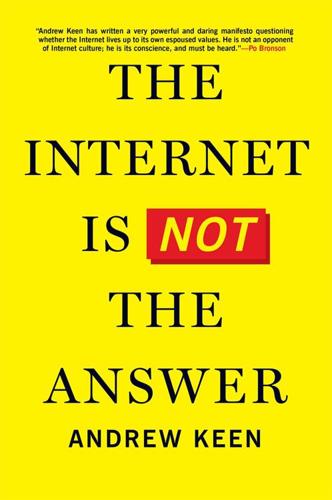
The Internet Is Not the Answer
by
Andrew Keen
Published 5 Jan 2015
Bentham’s utilitarianism, that bizarre project to quantify every aspect of the human condition, has reappeared in the guise of the quantified-self movement. Even the nineteenth-century debate between Bentham’s utilitarianism and John Stuart Mill’s liberalism over individual rights has reappeared in what Harvard Law School’s Cass Sunstein calls “the politics of libertarian paternalism”—a struggle between “Millville” and “Benthamville” about the role of “nudge” in a world where the government, through partnerships with companies like Acxiom and Palantir, has more and more data on us all25 and Internet companies like Facebook and OkCupid run secretive experiments designed to control our mood.
…
,” Guardian, March 24, 2014. 18 On the impracticality of this law, see, for example, this rather self-serving piece by Google’s legal czar David Drummond: “We Need to Talk About the Right to Be Forgotten,” Guardian, July 10, 2014. 19 Roger Cohen, “The Past in Our Future,” New York Times, November 27, 2013. 20 Jonathan Freedland, “From Memory to Sexuality, the Digital Age Is Changing Us Completely,” Guardian, June 21, 2013. 21 Mark Lilla, “The Truth About Our Libertarian Age,” New Republic, June 17, 2014. 22 Ibid. 23 Douglas Rushkoff, Present Shock: When Everything Happens Now (New York: Current, 2014), p. 9. 24 Mic Wright, “Is ‘Shadow’ the Creepiest Startup Ever? No, CIA Investment Palantir Owns That Crown,” Telegraph, September 21, 2013. 25 Cass R. Sunstein, Why Nudge: The Politics of Libertarian Paternalism (New Haven, CT: Yale University Press, 2014), p. 116. 26 Cohen, “Beware the Lure of Mark Zuckerberg’s Cool Capitalism.” 27 europarl.europa.eu/ep_products/poster_invitation.pdf. 28 John Naughton, “Amazon’s History Should Teach Us to Beware ‘Friendly’ Internet Giants,” Guardian, February 22, 2014. 29 Richard Sennett, “Real Progressives Believe in Breaking Up Google,” Financial Times, June 28, 2013. 30 Ibid. 31 Rebecca Solnit, “Who Will Stop Google?
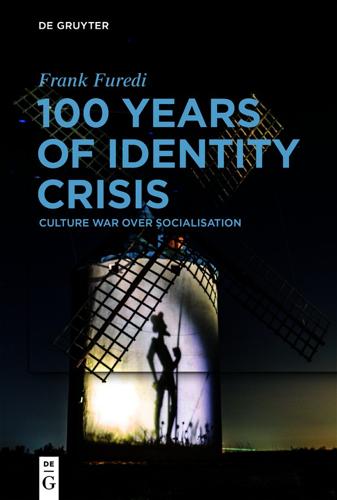
100 Years of Identity Crisis: Culture War Over Socialisation
by
Frank Furedi
Published 6 Sep 2021
. → Stoczkowski, W. (2009) ‘UNESCO’s doctrine of human diversity: a secular soteriology?’, Anthropology Today, 25(3), 7 – 11. a, b Strong, S. (1944) ‘A review of a book on the educational theories of George H. Mead’s approach to behaviourism by A.S. Clayton’, American Journal of Sociology, 50, 7 – 11. → Sunstein, C.R. (2014) Why Nudge? The Politics of Libertarian Paternalism, New Haven: Yale University Press. → Sunstein, C.R. and Vermeule, A. (2020) Law and Leviathan: Redeeming the Administrative State, Cambridge, Mass: Belknap Press. → Sussman, M.B. (1955) Sourcebook in Marriage and the Family, New York: Houghton Mifflin. → Szasz, T. (1989) Law, Liberty and Psychiatry, Syracuse: Syracuse University Press. → Taft, J. (1921) ‘Mental hygiene problems of normal adolescence’, Annals of the American Academy of Political and Social Science, 98(1), 61 – 67. a, b Thaler, L.K. and Koval, R. (2015) Grit to Great: How Perseverance, Passion, and Pluck Take You from Ordinary to Extraordinary, New York: Crown Business. → Thomson, I.T. (1997) ‘From conflict to embedment: the individual–society relationship, 1920 – 1991’, Sociological Forum, 12(4), 631 – 658. a, b, c Thomson, M. (2006) Psychological Subjects: Identity Culture, and Health in Twentieth-Century Britain, Oxford: Oxford University Press. a, b, c, d, e, f Trilling, L. (1957) ‘The sense of the past’, in Trilling, L., The Liberal Imagination: Essays on Literature and Society, New York: Doubleday Anchor Books. → Trilling, L. (1965) Beyond Culture, New York: Viking Press. a, b, c, d Tucker, A. (1777) The Light of Nature Pursued, 1st edition, 1768−1777, vol. 3, pt 1, → London: W.
…
Walsh (1997) The Growth of the Liberal Soul, Columbia: University of Missouri Press, p.89. 7 I. Mészáros (1989) The Power of Ideology, New York: Harvester Wheatsheaf, p.180. 8 L.K. Frank (1953), ‘The promotion of mental health’, Annals of the American Academy of Political and Social Science, 286, 167 – 174, at 167−168. 9 See C.R. Sunstein (2014) Why Nudge? The Politics of Libertarian Paternalism, New Haven: Yale University Press. 10 See the discussion on ‘moral science’ in D.J. Hunter and P. Nedelisky (2018) Science and the Good: The Tragic Quest for the Foundations of Morality, New Haven: Yale University Press. 11 See R. Wuthnow (1989), Meaning and Moral Order: Explorations in Cultural Analysis, Berkeley: University of California Press, p.68. 12 For a discussion of the challenges to the authority of science, see Jewett (2020). 1 See https://identityid.com/ (accessed 22 February 2019). 2 See www.idemia.com/we-stand-augmented-identity (accessed 19 February 2019). 3 E.H.
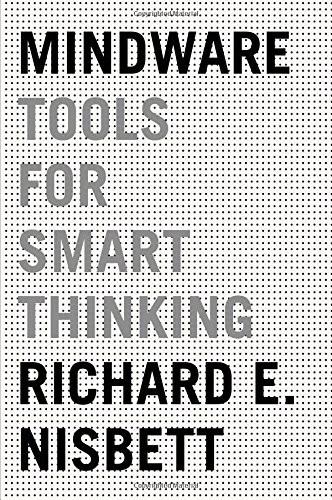
Mindware: Tools for Smart Thinking
by
Richard E. Nisbett
Published 17 Aug 2015
And behavioral economists are beginning to move into the business of helping people to make choices. They’re not only telling you how to make choices, they’re engineering the world so that you make choices they believe to be optimal. If this sounds Orwellian, it really isn’t. The tongue-in-cheek name that some behavioral economists use to describe their enterprise is “libertarian paternalism.” These economists will tell you how to make choices and arrange the world so that you’ll be likely to make good ones. But they’re not forcing you. You can always choose to ignore the choices they steer you toward making. As you might expect, the entry of psychologists onto the economic scene has brought along some of the basic assumptions discussed in the previous chapters.
…
Some ways of structuring decisions result in better outcomes for individuals and for society than other ways of structuring decisions. No one is hurt by opt-out procedures for things like organ donation; no coercion is involved because people who wish not to have their organs harvested are free to decline. The deliberate design of decision frameworks that function for individual and collective good has been called “libertarian paternalism” by Thaler and Sunstein.8 The difference between choice architectures that foster the right choices and those that don’t can be subtle—at least to people who are unfamiliar with the power of loss aversion and consequent status quo bias. In a “defined contribution” retirement plan, an employer pays a fixed amount of money into a savings plan equal to some fraction of what the employee puts into the plan.

Markets, State, and People: Economics for Public Policy
by
Diane Coyle
Published 14 Jan 2020
A key question is whether government officials should be acting more like the advertising executives of Mad Men, “correcting” the “biases” manifested in citizens’ choices, rather than economic technocrats assuming citizens are the people best able to make their own choices. Nudge advocates argue that theirs is a benign, “libertarian paternalism.” Given that there will always be a default option, or choices will always be framed one way or another, it would be foolish for the government not to select the option or framing most likely to lead people to choose the most efficient outcome. And this is clearly a valid point. People are not restricted from making the choice they prefer; it is just made a bit harder for them.
…
Ross (2017), “The Empirical Adequacy of Cumulative Prospect Theory and Its Implications for Normative Assessment,” Journal of Economic Methodology 25:150–165. Gilles Saint-Paul (2003), “Liberty and the Post-Utilitarian Society,” http://ideas.repec.org/p/iza/izadps/dp6911.html, and reply by Cass Sunstein and Richard Thaler (2003), “Libertarian Paternalism,” American Economic Review Papers & Proceedings 93, no. 2 (May): 175–179. Robert Sugden (2018), The Community of Advantage, OUP. Popular Books Dan Ariely (2008), Predictably Irrational, HarperCollins. Dan Ariely and Jeff Kreisler (2017), Dollars and Sense: How We Misthink Money and How to Spend Smarter, HarperCollins.
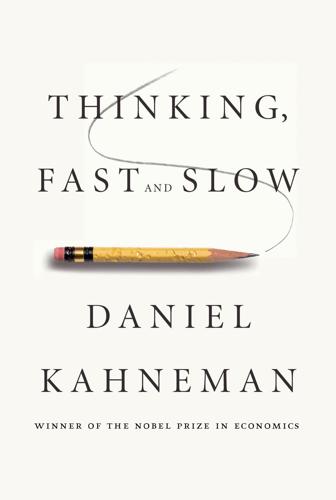
Thinking, Fast and Slow
by
Daniel Kahneman
Published 24 Oct 2011
In 2008 the economist Richard Thaler and the jurist Cass Sunstein teamed up to write a book, Nudge, which quickly became an international bestseller and the bible of behavioral economics. Their book introduced several new words into the language, including Econs and Humans. It also presented a set of solutions to the dilemma of how to help people make good decisions without curtailing their freedom. Thaler and Sunstein advocate a position of libertarian paternalism, in which the state and other institutions are allowed to nudge people to make decisions that serve their own long-term interests. The designation of joining a pension plan as the default option is an example of a nudge. It is difficult to argue that anyone’s freedom is diminished by being automatically enrolled in the plan, when they merely have to check a box to opt out.
…
It is a good sign that some of these recommendations have encountered significant opposition from firms whose profits might suffer if their customers were better informed. A world in which firms compete by offering better products is preferable to one in which the winner is the firm that is best at obfuscation. A remarkable feature of libertarian paternalism is its appeal across a broad political spectrum. The flagship example of behavioral policy, called Save More Tomorrow, was sponsored in Congress by an unusual coalition that included extreme conservatives as well as liberals. Save More Tomorrow is a financial plan that firms can offer their employees.
…
It avoids the resistance to an immediate loss by requiring no immediate change; by tying increased saving to pay raises, it turns losses into foregone gains, which are much easier to bear; and the feature of automaticity aligns the laziness of System 2 with the long-term interests of the workers. All this, of course, without compelling anyone to do anything he does not wish to do and without any misdirection or artifice. The appeal of libertarian paternalism has been recognized in many countries, including the UK and South Korea, and by politicians of many stripes, including Tories and the Democratic administration of President Obama. Indeed, Britain’s government has created a new small unit whose mission is to apply the principles of behavioral science to help the government better accomplish its goals.
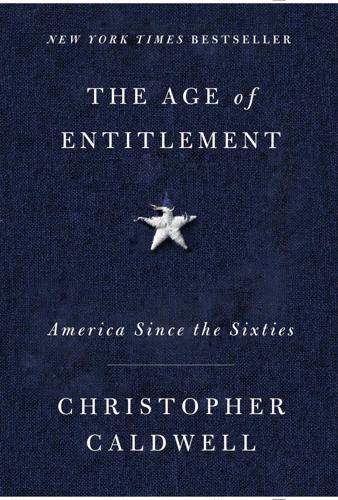
The Age of Entitlement: America Since the Sixties
by
Christopher Caldwell
Published 21 Jan 2020
Corporate employees want to save for retirement but, when young, underestimate how much they will need. So why not require that the default option for workers be a “Save More Tomorrow” plan, which would cause their deductions to escalate automatically as the years passed? The authors called such measures “choice architecture” or “libertarian paternalism.” No one would be ordering anybody around. Authorities would just firmly steer subjects to a choice that was obviously superior. You didn’t have to contribute to your retirement, the way you did with Social Security. Rather than fine or jail you for not conforming, the government would resort to other, more intimate tools, starting with inconvenience.
…
As long as no one questioned the claim of activists to be fighting bias, the burden of proof on society’s “choice architects” was virtually zilch. For the improvements in government efficiency that Thaler and Sunstein sought, no cost in damaged traditions and institutions was too high: We agree that long-standing traditions may be quite sensible, but we do not believe that traditionalists have a good objection to libertarian paternalism. Social practices, and the laws that reflect them, often persist not because they are wise but because Humans, often suffering from self-control problems, are simply following other Humans. Inertia, procrastination, and imitation often drive our behavior. The authors were ready to enforce conformity to their own new institutions but deaf to others’ claims for conformity to older ones.
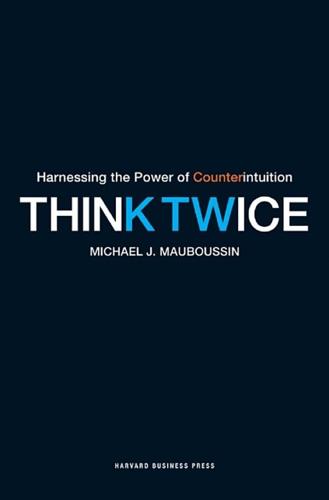
Think Twice: Harnessing the Power of Counterintuition
by
Michael J. Mauboussin
Published 6 Nov 2012
Science 302 (November 21, 2003), 1338–1339. People who structure choices create a context for decision making. Since many people go with the default alternatives, choice architects can influence the quality of decisions for large groups, for better or for worse. Thaler and Sunstein advocate for an idea they call “libertarian paternalism,” where the default is a good choice for many (paternalism), yet individuals can depart from the default if they want to (libertarianism). Choice architects—doctors, businesspeople, government officials—are everywhere and operate with a wide range of skill and awareness. A prominent psychologist who is popular on the speaker circuit told me a story that underscores how underappreciated choice architecture remains.
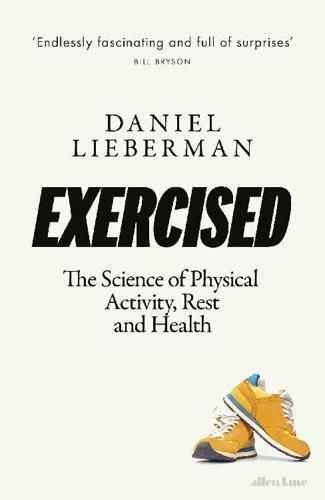
Exercised: The Science of Physical Activity, Rest and Health
by
Daniel Lieberman
Published 2 Sep 2020
Exercise, moreover, is part of a general fitness culture at Björn Borg. Instead of a boozy Christmas party, the entire company goes sledding and then drinks hot chocolate. Every summer they do a six-mile “fun run” through the streets of Stockholm. To be honest, I had qualms about Henrik’s approach. Philosophically, I classify myself as an admirer of “libertarian paternalism,” the idea that companies, governments, and other institutions should help us act in our own best self-interests while respecting our freedom of choice.4 Libertarian paternalists favor nudges over coercion. Instead of forcing people to exercise, libertarian paternalists provide incentives.
…
See San hunter-gatherers Kalenjin ethnic group, xii Kaplan, Hillard, 311 Kelley, Johnny, 224 Kenya: chair habits and strength of backs of teenagers in, 54 distance runners from, 11 Eldoret, research in, xi, xii, 218–19, 337–8 excavation project in Olorgesailie, 97–8 modernization and changes to life in, 337–8 Nataruk massacre, 147, 374n14 Pemja, research in, xi–xii, 183–4, 184, 185, 337–8 research on physical activities in, xiv running form of runners from, 218–19 Keys, Ancel, 33–7 killer-ape hypothesis, 149–50 kilocalories, 30, 346n5–6 King, William, 130 King Kong, 128 Kipchoge, Eliud, 218 knuckle walking, 180–2, 381n14 kudu, xiv, 172, 183, 203, 210–11, 224, 388–9n37 lactate, 108, 109, 110 Lahr, Marta, 147 LaLanne, Jack, 122, 280, 293 lazy/laziness: born to be lazy, 41–6 concept and definition of, 46 defense of and praise for, 46–8 not exercising enough as lazy, xv sloth compared to, 46 Le Corre, Erwan, 122–3 Lee, I-Min, 401n3 Lee, Richard B., 17–18, 154–5 libertarian paternalism, 259–60 Liebenberg, Louis, 211, 212, 224 longevity and mTOR, 338–9 Lovejoy, Owen, 150 Lucy, 150 Lumholtz, Carl, 223 Maasai, 97, 124–5, 126 MacDonald, Chris, 50 Man Against Horse race, 200–1, 203 mandatory exercise, 257–60, 258, 271–3 Mansfield Park (Austen), 38–9 marathons and ultramarathons: Boston Marathon, 224, 265–6 calories consumed by running, 182, 382n20 costs associated with, xiii midlife crisis and training for, 213 motivation for running, xiii, 266 New York City Marathon, 224 number of finishers, 205, 386n10 physical and mental demands of, 13–14 sitting patterns of runners, 65 speed of runners, 116–17, 386n7 training for, 7 weather conditions and dressing for, 265–6 marriage and too much or too little exercise, 291 Marshall, Elizabeth, 221 Marshall, John, 221, 294 Marshall, Laurence, 221 Marshall, Lorna, 221 Marx, Groucho, 177, 181 Massachusetts physical education law, 275–6 mattresses, 74 McDade, Thom, 353n43 McDougall, Christopher, 6, 343–4n1 McGillivray, Dave, 311 McLaurin, John, 376–7n42 meat, scavenging for, 210–11 Medawar, Peter, 229, 237 medical care advances treatment of diseases, 249, 250 medicalized exercise, xiii, xv, 24, 228, 280, 291–2, 298–301 Meijer, Johanna, 20–1 menopause, 229, 234, 323 mental health: evolutionary mismatch of, 331–3 exercise recommendation, 335–6 medication to treat, 334, 416n130 mood-altering effects of exercise, 222, 223–4, 267–9, 399n22 physical activity effects on, 21–2, 23, 331, 333–5, 415–16nn129–130 resistance training benefits for, 138 See also anxiety; depression metabolic equivalents (METs) and activity levels, 351n27, 401n8 metabolic syndrome, 305–8, 405n15 metabolism: aerobic exercise benefits for, 293 aerobic metabolism, 107, 108–10, 109, 365n22, 365n25, 366n35 afterburn, 192, 239–41, 240, 384n48 basal metabolic rate (BMR), 31, 32–3, 35–7, 347nn10–11, 347n16, 384nn46–47 HIIT effect on, 295 resistance training benefits, 297 resting metabolic rate (RMR), 30–1, 32, 34–7, 191–2, 239, 240 starvation effects on human metabolism, 33–7, 347n14, 347n16 walking and weight loss, 191–3, 384nn46–48 metabolites, 78–9 Mexico, 84.
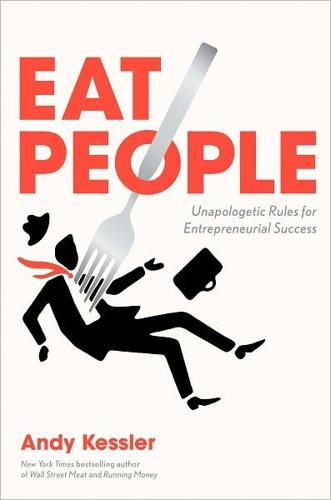
Eat People: And Other Unapologetic Rules for Game-Changing Entrepreneurs
by
Andy Kessler
Published 1 Feb 2011
Who has any idea how to confront situations unless there is some anchor of honesty or morality or self-interest or just kindness that influences what we do? Entire wings of psychology departments exist to study this stuff. And now so do businesses and society. Richard Thaler and Cass Sunstein wrote Nudge, a book about how governments can act with “libertarian paternalism” to influence people’s behavior, to nudge them away from making poor decisions. Of course, who decides what is right or wrong, good or bad? Andrew Ferguson wrote an April 2010 piece in The Weekly Standard aptly titled “Nudge Nudge, Wink Wink,” pointing out that many of the favorite behavioral economics studies are done by grad students observing paid volunteer undergraduates doing trivial tasks, and arguing that this is hardly a basis for making largescale policy recommendations for a better society.
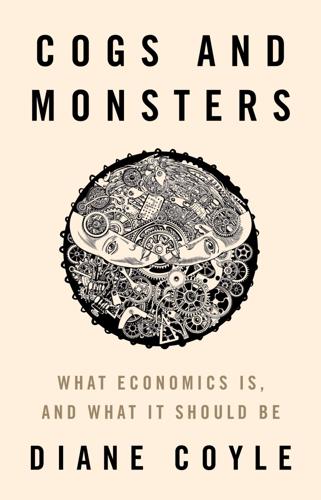
Cogs and Monsters: What Economics Is, and What It Should Be
by
Diane Coyle
Published 11 Oct 2021
Sugden, R., 2018, The Community of Interest, Oxford: Oxford University Press. Sugden, R., 2020, ‘Normative Economics Without Preferences’, International Review of Economics, online 23 July 2020. Sundararajan, A., 2016, The Sharing Economy: The End of Employment and the Rise of Crowd-Based Capitalism, Cambridge, MA: MIT Press. Sunstein, Cass R., 2003, ‘Libertarian Paternalism’, American Economic Review, 93 (2), 175–179. Sutton, J., 2000, Marshall’s Tendencies: What Can Economists Know?, London: MIT Press and Leuven University Press. Takagi, S., 2020, ‘Literature Survey on the Economic Impact of Digital Platforms’, International Journal of Economic Policy Studies, 14, 449–464, https://doi.org/10.1007/s42495-020-00043-0.
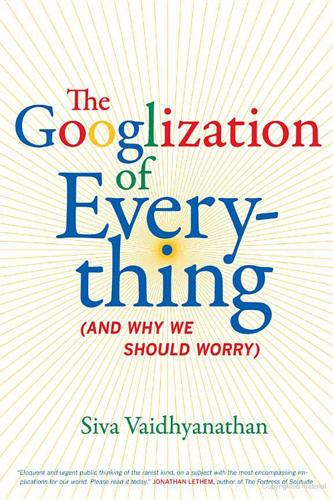
The Googlization of Everything:
by
Siva Vaidhyanathan
Published 1 Jan 2010
The default setting of automatic enrollment, Thaler and Sunstein explain, helped employees overcome the “inertia” caused by business, distraction, and forgetfulness.9 That choice architecture could have such an important effect on so many human behaviors without overt coercion or even elaborate incentives convinced Thaler and Sunstein that taking advantage of it can accomplish many important public-policy goals without significant cost to either the state or private firms. They call this approach “libertarian paternalism.” If a system is designed to privilege a particular choice, they observe, people will tend to choose that option more than the alternatives, even though they have an entirely free choice. “There is no such thing as a ‘neutral’ design.”10 It’s clear that Google understands the power of choice architecture.
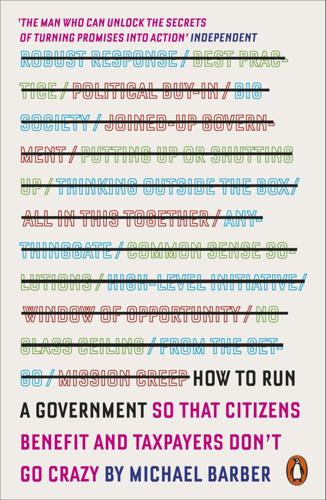
How to Run a Government: So That Citizens Benefit and Taxpayers Don't Go Crazy
by
Michael Barber
Published 12 Mar 2015
In fact, it is entirely consistent with both, as David Halpern, Britain’s leading nudge ‘guru’, affirms. It is best seen as a major contribution to thinking about how quasi-markets can work successfully in public systems. To summarize a somewhat academic or theoretical argument, the authors of Nudge: Improving Decisions About Health, Wealth and Happiness argue for what they call ‘libertarian paternalism’: ‘libertarian’ because they advocate choice in the public as well as private sectors; ‘paternalism’ because they believe that real human beings as opposed to ‘econs’ – the theoretical human beings beloved of economists – don’t necessarily maximize either their own interests or those of their society.
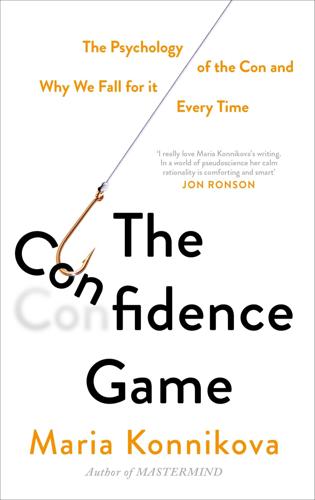
The Confidence Game: The Psychology of the Con and Why We Fall for It Every Time
by
Maria Konnikova
Published 28 Jan 2016
Just as a grifter never coerces in any observable way, a nudge never actually forces one behavior or forbids another—a smoking ban is not a nudge but a policy regulation—but rather changes the nature of the choice itself. That is, you influence a decision by changing how, precisely, that decision is presented. Thaler and Sunstein explain their reasoning in terms of a seeming oxymoron: libertarian paternalism. The environment affects our choices no matter what, the argument goes, so why not make sure it’s doing so for the better? Or, in the case of the con artist, for the worse? The order effect is the tip of a very large iceberg that includes things like position effects—where something is located physically.

Geek Heresy: Rescuing Social Change From the Cult of Technology
by
Kentaro Toyama
Published 25 May 2015
No such single study is a problem in itself – the problem is that such studies are increasingly prioritized (because they’re easier and cheaper to run) over studies of slower-changing, internal traits and are becoming disproportionately influential in policy. 16.For the canonical exposition of behavioral economics’ “nudges,” see Thaler and Sunstein (2008), who popularized the term. Their notion of “libertarian paternalism” is among the gentlest conceptions of manipulation, and most of their ideas are undoubtedly worth implementing. But is that all we’re going to ask of ourselves? Can’t we go beyond nudging one another? 17.Psychologists’ notions of personality development differ from the “personality development” that I have encountered in some social change efforts, especially outside of the United States.
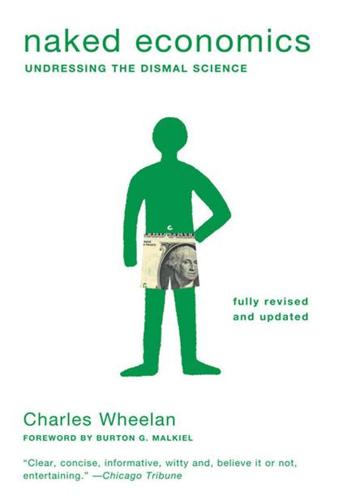
Naked Economics: Undressing the Dismal Science (Fully Revised and Updated)
by
Charles Wheelan
Published 18 Apr 2010
As a practical matter, those mistakes often do spill over to affect the rest of us, as we saw in the real estate collapse and the accompanying mortgage mess. And there is a range of views in between (e.g., you’re allowed to sniff glue and roll down the steps but only while wearing a helmet). One intriguing and practical middle ground is the notion of “libertarian paternalism,” which was advanced in an influential book called Nudge by Richard Thaler, a professor of behavioral science and economics at the University of Chicago, and Cass Sunstein, a Harvard Law School professor now serving in the Obama administration. The idea behind benign paternalism is that individuals do make systematic errors of judgment, but society should not force you to change your behavior (that’s the libertarian part); instead, we should merely point you in the right direction (that’s the paternalism part).

Live and Let Spy: BRIXMIS - the Last Cold War Mission
by
Steve Gibson
Published 2 Mar 2012
They want individuals to come to the correct decisions by themselves; provided, those decisions coincide with what the Government predetermines! Far from fulfilling the rhetoric of getting out of people’s lives, government continues to make itself more indispensable. Similar to the false contrast between hard and soft power, libertarian paternalism (nudging), like authoritarianism, is still telling you what to do – with or without force. Thus, the singularly most important ideological goal of all twentieth-century political elites – freedom – has become reinterpreted as ‘public choice’, ‘marketisation’ or ‘nudge politics’. This interference with individual moral autonomy – the ability to make your own choices, including bad ones – was based upon the dark and dismal Cold War notion of self-interested people responding only to targets and incentives.
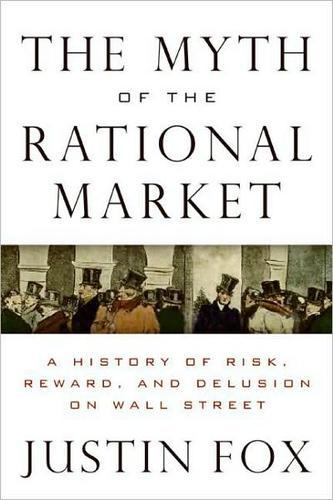
The Myth of the Rational Market: A History of Risk, Reward, and Delusion on Wall Street
by
Justin Fox
Published 29 May 2009
“We’ve accepted the argument of behavioralists like Dick Thaler that people do dumb things,” said William Niskanen, a former Chicago student of Milton Friedman and chairman of the Cato Institute, the libertarian Washington think tank.14 Thaler joined forces with Chicago law professor Cass Sunstein to apply his ideas beyond retirement savings. They dubbed their guided approach to choice “libertarian paternalism,” and showed how it could improve lending regulation, Medicare prescription plans, public schools, and marriage.15 Just as the law and economics movement that emerged from Chicago gave intellectual backing to the great deregulation of the 1970s through the 1990s, Sunstein became a leading proponent of a new behavioral law and economics movement that aimed to guide a rethink of law and regulation.16 Sunstein’s friend Barack Obama, a former part-time Chicago law professor, put together a presidential campaign platform replete with behaviorist ideas—and appointed Sunstein as his regulation czar after he was elected.
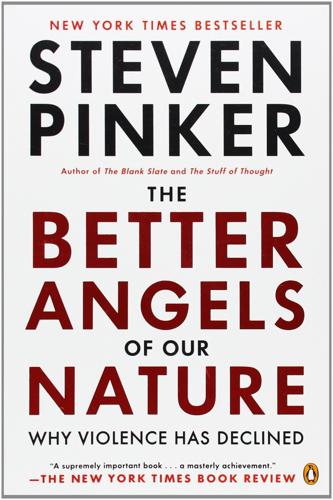
The Better Angels of Our Nature: Why Violence Has Declined
by
Steven Pinker
Published 24 Sep 2012
Much of what looks like a lack of self-control in the modern world may consist of using a discounting rate that was wired into our nervous systems in the iffy world of our pre-state ancestors, when people died much younger and had no institutions that could parlay savings now into returns years later.76 Economists have noted that when people are left to their own devices, they save far too little for their retirement, as if they expect to die in a few years.77 That is the basis for the “libertarian paternalism” of Richard Thaler, Cass Sunstein, and other behavioral economists, in which the government would, with people’s consent, tilt the playing field between their current and future selves.78 One example is setting an optimal retirement savings plan as the default, which employees would have to opt out of, rather than as a selection they would have to opt into.
…
Lebanon war as a lapse of self-control: Mueller & Lustick, 2008. 75. The logic of self-control: Ainslie, 2001; Daly & Wilson, 2000; Kirby & Herrnstein, 1995; Schelling, 1978, 1984, 2006. 76. Ancestral versus modern discounting rates: Daly & Wilson, 1983, 2000, 2005; Wilson & Daly, 1997. 77. Myopic retirement planning: Akerlof, 1984; Frank, 1988. 78. Libertarian paternalism: Thaler & Sunstein, 2008. 79. Myopic discounting: Ainslie, 2001; Kirby & Herrnstein, 1995. 80. Hyperbolic discounting: Ainslie, 2001; Kirby & Herrnstein, 1995. 81. Hyperbolic discounting as composite of two mechanisms: Pinker, 1997, p. 396; Laibson, 1997. 82. Two selves: Schelling, 1984, p. 58. 83.
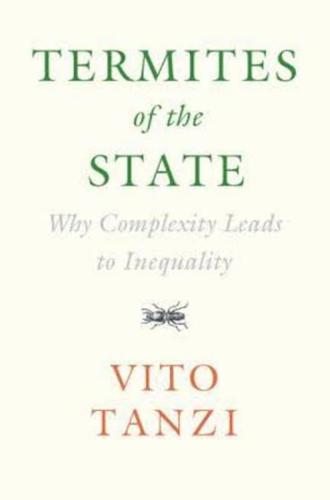
Termites of the State: Why Complexity Leads to Inequality
by
Vito Tanzi
Published 28 Dec 2017
See Statutes urbanization and, 254 weakness of, 70 Legitimization of market, 85–86 Lenin, V.I., 322 Leontief, Wassily, 3, 46–47 Leo XIII (Pope), 20 Lex mercatoria, 99–100, 328 Liberals on growth and income redistribution, 227 regulations and, 160 Libertarians challenges to welfare policies, 60–61 on government intervention, 317–18 “libertarian paternalism,” 141–42 on limited role of government, 99–100, 259 regulations, opposition to, 153–54, 278 on safety-related regulations, 147 Life expectancy, 390–91 Limited role of government generally, 85 Buchanan on, 85, 313–14 conservatives on, 99–100, 259 criminal law and, 95–96 Friedman on, 85, 313–14 Hayek on, 85, 259, 313–14 health care and, 98 income redistribution and, 98, 160–61 infrastructure and, 96 libertarians on, 99–100, 259 market fundamentalism and, 80, 159 ministrant functions, 98–99 nudges and, 97 protection of property and, 94–96 public spending and, 96 Smith on, 99 social contract and, 89–91 social needs and, 96–97 in UK, 98 urbanization, effect of, 97 in US, 98 438 Lincoln, Abraham, 328, 340 Lobbyists defense spending and, 178–79 former government employees as, 113, 173 genetically modified food and, 182–83 power of, 336–38 problems with, 339 regulations and, 171, 173, 280 restrictions on, 119 Locke, John, 7–8 Lopokova, Lydia, 27–28 Louis XIV (France), 291 Lucas, Robert, 38, 85, 160–61, 313–14, 378–79, 394 “Luck,” income inequality and, 321–23 Luxemburg, marginal tax rates in, 376 Maastricht Stability and Growth Pact, 273 Machiavelli, Niccolò, 183 Madison, James, 202, 249–50 Mafia, 97–98 Maginot Line, 338 Mandated disclosures, 127–28 Mao Zedong, 322 Marat, Jean-Paul, 160 Marginal tax rates.
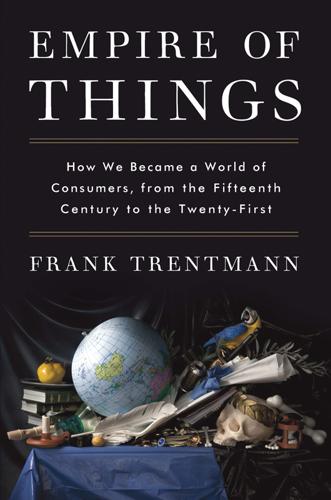
Empire of Things: How We Became a World of Consumers, From the Fifteenth Century to the Twenty-First
by
Frank Trentmann
Published 1 Dec 2015
Today, the discussion of change is mainly framed in terms of choice, markets and the sovereign consumer. Behavioural economists have added the concept of ‘choice architecture’ to show that consumers do not make decisions in a vacuum but are influenced by available information as well as their own inertia, procrastination or unfounded optimism.20 Their analysis has encouraged a libertarian paternalism, a mix of measures that gently nudges people towards more sustainable behaviour by improving the ‘architecture’ with the help of more salient information, default rules and opinion from valued groups, while preserving freedom of choice overall. This is a step in the right direction but, from a historical perspective, does not go far enough.